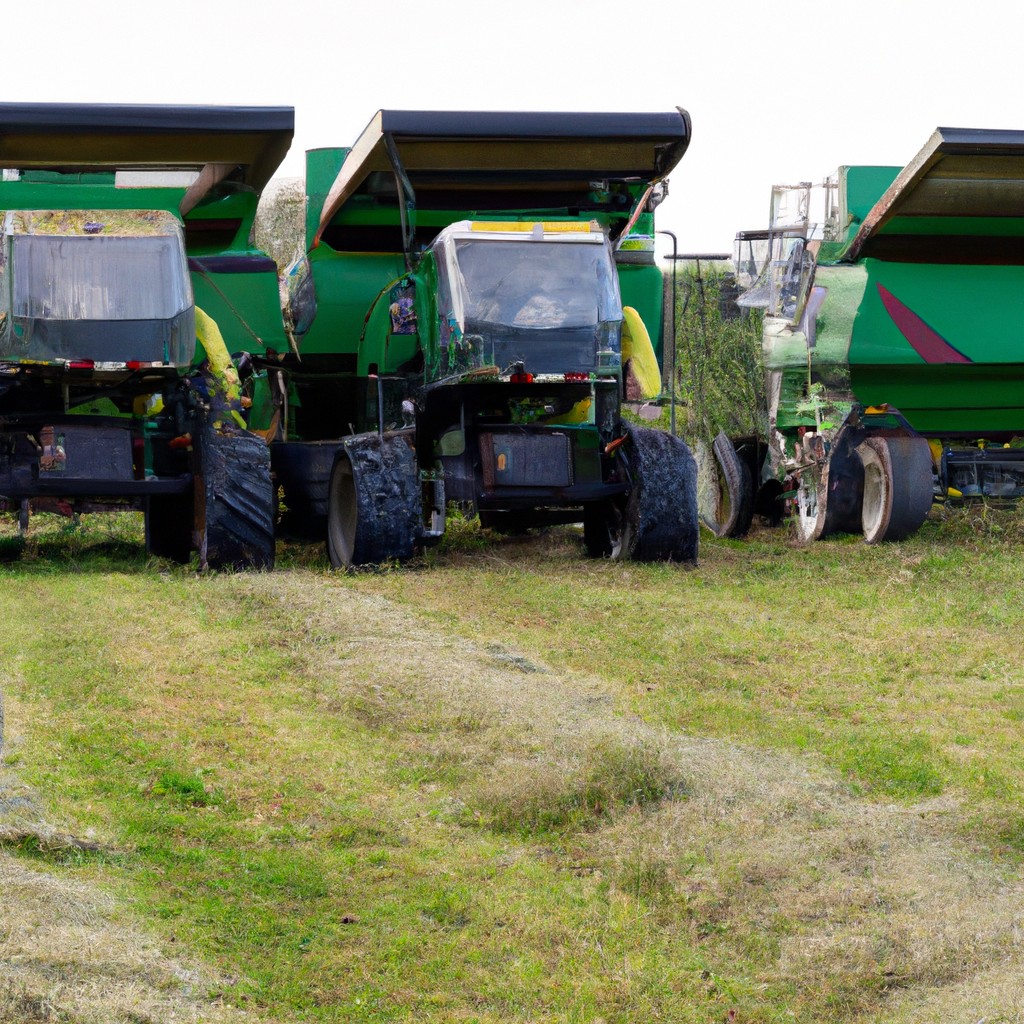Get the lowdown on the world’s largest agricultural companies and how they shape our food systems.
Look Inside:
Biggest Agricultural Companies in the US

These companies dominate due to their vast operations, significant market shares, and innovative practices. Let’s dive in, shall we?
First up, Cargill. This behemoth isn’t just about agriculture; it’s an empire. Cargill handles everything from crop production to meat processing. They’re so big, they could probably high-five themselves across the globe.
Then, let’s sprinkle in a little John Deere. Think green tractors and cutting-edge agricultural machinery. Their equipment transforms fields into gold mines, figuratively speaking, of course. Plus, their tech advancements make farming feel almost futuristic.
Don’t forget Tyson Foods, practically synonymous with poultry. They control a large share of the meat market in the U.S., serving up chicken, beef, and pork to a store near you.
Monsanto, before being acquired by Bayer, revolutionized agricultural biotechnology. Their genetically engineered seeds help farmers grow crops more efficiently. But, like any good superhero or villain, they have their controversies.
Lastly, Archer Daniels Midland (ADM). Major player in processing and distributing all things agricultural. If your morning toast involves soy, corn, or wheat products, ADM probably had a hand in it somewhere.
Agricultural Automation Trends: An Overview
Robots milking cows, drones surveying fields, and self-driving tractors are no longer just science fiction—they’re today’s farming tools. Automation is transforming agriculture by making it more efficient and sustainable.
First off, precision farming is a big deal. By using GPS and IoT sensors, farmers can monitor their crops down to individual plants. It’s like Fitbits for corn. Less waste, more yield.
Then there are those robots. Automated systems can now handle tasks like planting, weeding, and harvesting. Imagine a Roomba, but for carrots!
Don’t forget drones. These airborne helpers can map fields, monitor crop health, and even spray pesticides. Think of them as the eagles in The Lord of the Rings, but instead of saving Middle-earth, they’re saving your tomatoes.
Lastly, data analytics. Farmers use advanced algorithms to predict weather patterns, optimize irrigation, and even decide the best time to plant. It’s agriculture meets algorithms. Fascinating stuff.
These trends are becoming the new norm and are paving the way for a more tech-savvy and sustainable future in farming.
Our Methodology
When diving into the world of the largest agricultural behemoths, a little method to the madness helps. We didn’t just throw darts at a list; there’s a science to it.
First, revenue was our main squeeze. Cold hard cash speaks volumes about scale and impact.
We also peeked into global presence because being big in one place is nice, but ruling the agricultural roost worldwide? That’s where the magic happens.
Workforce size came into play too. More employees often mean larger operations and influence.
Lastly, tech adoption and sustainability practices are the sprinkles on top. Companies that are innovating and caring for the planet get extra brownie points.
We kept it all connected and fun – no boring spreadsheets here!
Dole PLC (NYSE:DOLE)
Known for those pineapple stickers we’ve all seen, Dole PLC has a presence that’s hard to miss. This giant in the world of fruits and vegetables has more layers than an onion, figuratively speaking. Here’s a quick bite:
- Headquarters: Westlake Village, California, with operations across the globe. It’s like having a fruit stand in every corner of the world.
- Products: Fresh and packaged fruits and vegetables, salads, and juices. Think of them as the Swiss Army knife of produce.
- Sustainability: Dole has initiatives aimed at reducing food waste, promoting sustainable farming, and responsible water use. They’re not just peeling bananas; they’re peeling away environmental impact.
With innovations aimed at extending shelf life and reducing carbon footprints, Dole is not just about keeping your fruit bowl full; it’s about keeping our planet healthy too.
Cargill
Founded in 1865, this agricultural behemoth has its tentacles in just about everything you can imagine under the sun. From grain and oilseed to food ingredients and even risk management solutions, there’s little that escapes its realm. If there were heavyweight championships for agriculture, Cargill would be in the running for every title.
Imagine an octopus wearing a farmer’s hat, each tentacle managing a critical aspect of the global food supply chain. It supplies practically all the essential elements—meat, poultry, animal feed, and more. Oh, and let’s not forget their impressive work in sustainability. They’re rolling out techniques to reduce greenhouse gas emissions, promote soil health, and ensure water stewardship. Handy, right?
Their penchant for innovation also can’t be overlooked. Recently, they’ve been diving into alternative proteins. Yes, you heard that right—plant-based meat alternatives! It’s enough to make anyone whip up a veggie burger in sheer excitement.
Cargill’s influence is massive, touching over 70 countries. With such a reach, they’re on a mission to balance profit with responsibility. In short, they strive to feed the world without wrecking it. Now, if that doesn’t make them a superpower, what does?
